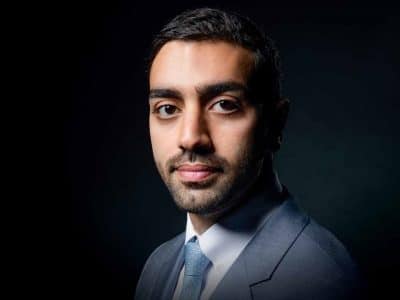The former CEO of a top UAE bank has criticised customers for being “reckless” in their borrowing, while banks are doing “the right thing”.
Michael Tomalin, who recently retired as CEO of the National Bank of Abu Dhabi (NBAD) after 14 years, said banks were not responsible for customers who over-borrowed because they could not access the customers’ lending history.
“Individuals are being reckless by over-borrowing, not banks,” he told Arabian Business in an exclusive interview published in full in the January 12-18 edition of the magazine.
“It’s not the bank’s problem; it’s the individual’s problem. Each bank is doing the sensible thing but can’t see what’s going on with that guy/girl banking somewhere else.”
The planned national credit bureau would help limit customers’ ability to “bank shop” and overstretch themselves by taking out loans at numerous financial institutions, Tomalin, who is now an executive member of the NBAD board, said.
“When the credit bureau is in the perfect state and all the banks participate it will make a big difference because it will allow [banks] to take credit checks before granting credit, so that will make the decision making much easier.
“It will also bring the price of credit down, because if somebody has a very good record then banks will be happy to do it.
“My concern is its going to take quite a while to get to that perfection; all the banks have got to participate, all the names have got to be in the right order, you’ve got to reference everybody through numbers, so getting into that perfect state is going to take a while.”
The credit bureau is due to be launched by the end of March after a six-month delay and will be operated by Al Etihad Credit Bureau, a federal government company specialising in providing UAE-based credit reports and other financial information.
AECB said earlier this month it had approached all UAE-based banks to sign agreements and provide credit information by the end of January.
Banks in the UAE presently are unable to access data on consumers at other financial institutions when making a lending decision, which has led to residents borrowing from multiple lenders and running up huge personal debts impossible to repay.
Defaulting on debt is a criminal, rather than a civil, offence in the UAE, with those unable to meet repayments facing jail sentences.
During the financial crisis, many expatriates with large debts left the country without repaying their loans.
Personal borrowing is on the rise again – with the total value of personal loans taken out in the first five months of 2013 equal to all of 2012.
But Tomalin, known for his conservative lending approach, said he was “not too concerned about that yet”.
“There’s a correction going on. We had asset growth in the banking system over much of the time that I was there, 10-15 percent a year across the system [but] over the last few years the asset growth was actually quite low, maybe 2, 3, 4 percent, in fact, in some periods it’s been flat – negative.
“We’ve seen a recovery in the property prices [and] when people see their personal circumstances improve they tend to spend some more, but the Dubai economy is [also] picking up, a lot of people are coming into the country and when they come into the country they will use credit and they need to have banking services.
“I think it’s great that the economy is now growing at 4 percent so with inflation you’d expect the bank market to grow probably 6, 7, 8 percent in asset terms a year so it’s going to look fast relative to the rather pedestrian pace we’ve had over the last 2-3 years, but not that fast compared to the growth that we had 6 or 7 years previously.”
During a broad interview, Tomalin also called for the issuing of a bounced cheques to be decriminalised, arguing banks’ use of security cheques was archaic.
He also said it was “a pity” the UAE Central Bank had thought it necessary to introduce a mortgage cap at the end of last year.
“I think there can be some general rules and regulations or limitations that banks would find acceptable but the numbers have got to be sensible,” he said.
“To find that right balance is something that ultimately bankers should decide.”








